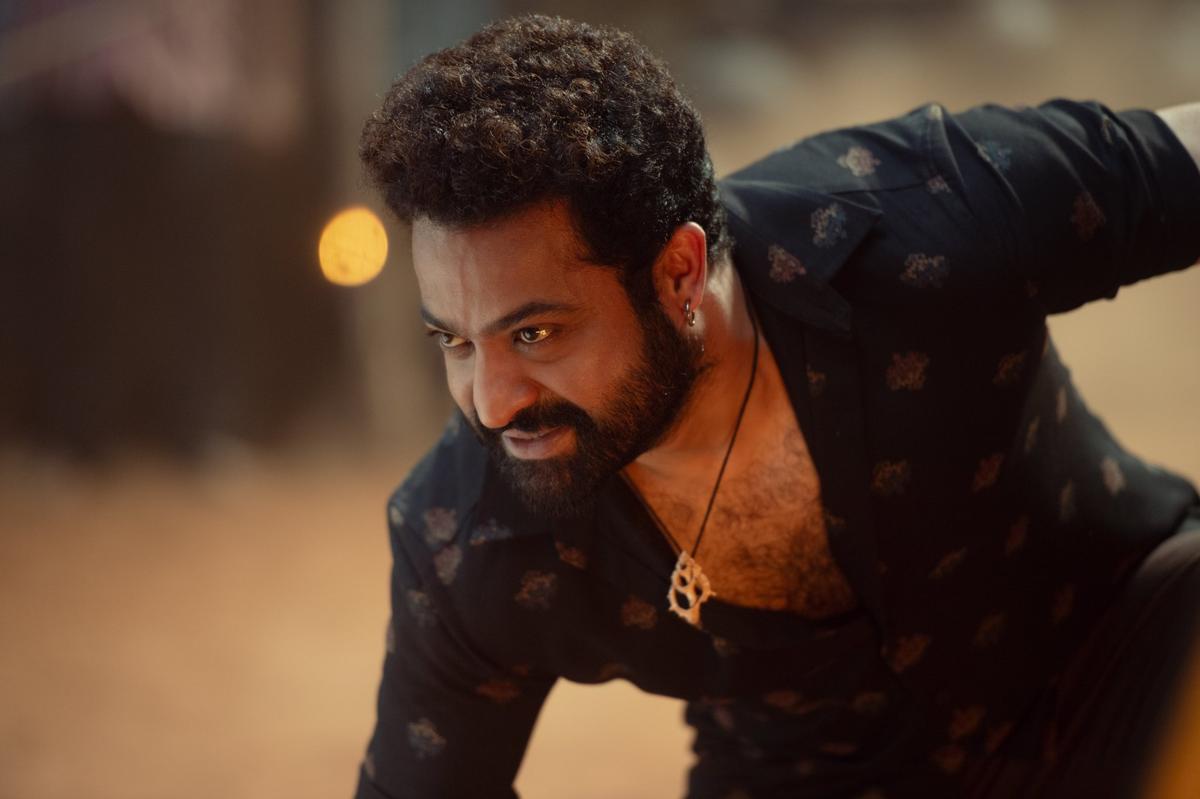Nine years after SS Rajamouli’s Baahubali – The Beginning left viewers curious about why Kattappa killed Baahubali, a spate of films have been mounted ambitiously, with scope for sequels. This has turned out to be a double-edged sword. While filmmakers get the scope to present in-depth character delineations and build the world in which the story unfolds, there has also been a tendency to overstretch the narrative. A few questions are left unanswered, with the hope that the audience will wait in anticipation of a sequel. Director Koratala Siva’s Telugu film Devara, starring NTR Jr, Saif Ali Khan and Janhvi Kapoor, is the latest to follow suit. The film, which has also been dubbed and released in multiple languages, has a few awe-inducing segments that are enhanced by Anirudh Ravichander’s vibrant music score, only to eventually make us wonder if a sequel is warranted.
.
Devara: Part 1 (Telugu)
Director: Koratala Siva
Cast: NTR, Janhvi Kapoor, Saif Ali Khan
Duration: 178 minutes
Storyline: In a fictional coastal town, a police officer sets out to curb crime on the high seas and learns of the legend of Devara that governs the high seas
The term devara alludes to male Gods who are revered by coastal communities. Jr NTR plays Devara, a mysterious figure in a fictional coastal region adjacent to the mountains. The story begins in 1996, as India gears up to host the Cricket World Cup, and goes back in time to recount the story of Devara, who supposedly rules over the high seas. Koratala Siva does not waste time. A police officer (Ajay) witnesses something underwater that jolts him and sets the stage for a village elder, Singappa (Prakash Raj), to narrate the story of Devara.
We are led into the seaside region where four clans reside, and we learn about the erra samudram (red sea). The narrative explores human behaviour in the context of both courage and fear. Moving away from oft-explored stories of a village being oppressed and turn to a saviour to find courage, this film explores the possibility of what some people can do in the utter lack of fear. When Devara tries to differentiate between the courage that is required to live as opposed to brute courage that can kill, the moral standing of his statement is lost on several folks surrounding him, including Bhaira (Saif Ali Khan).


A still from ‘Devara: Part 1’
An engagingly mounted sequence on a ship stacked with containers establishes the stealth with which the men, led by Devara and Bhaira, operate on the high seas. Devara is aware that he isn’t a saint, though he has no idea of the ramifications of his stealth operations until a little later. He tells his young son Vara (NTR in a dual role of the grown-up son) that, unlike their ancestors who fought for freedom, he is insignificant. Devara’s moral stance becomes the prime reason for the cracks within the four clans to deepen.
The film does not delve into how Devara and Bhaira from different clans became friends and collaborators, but gradually shows how their moral compasses are different. The others around them, such as the characters played by Kalaiarasan and Tom Shine Chacko, deepen the divide between Bhaira and Devara. An elaborate Ayudha pooja sequence establishes the significance of the festival and the traditional weapons of these clans. The Telugu title is formed by the assembling of weapons of different shapes. A glimpse of a fish-shaped knife is also in sync with the coastal communities in the film.
Several scenes and segments — like the container sequence and the Ayudha pooja festivities — that have their resonance as the story progresses, rather than being standalone moments. Even the smaller moments, such as Vara casually talking about hair dye and Devara and Vara sitting on a stone hedge, have payoffs later, though some twists and turns can be spotted a mile away.
The narrative is full throttle and engaging for more than an hour, when it establishes the world of Devara and its complexities. In the later portions, the intensity is traded for a banal romance track between Vara and Thangam (Janhvi Kapoor) and the many moves of the brooding Bhaira that steadily get boring and tiresome. Towards the end, when the film ends with a Baahubali-like question, it does not have the required impact and also feels incomplete.

A still from ‘Devara: Part 1’
What holds the film together when the writing fizzles is the technical department. Rathnavelu’s cinematography deftly presents the sequences picturised against the black-blue sea at night, contrasting it with oil lamps and bonfires in the villages. Sabu Cyril’s production design gives the coastal region a mix of beauty and mysterious quality. The one who has had the most fun, though, is Anirudh Ravichander. Sometimes with rock-inspired score and sometimes using the traditional dol and dappu, his music infuses energy into the proceedings.

In the action drama driven by men, some other characters get drowned such as Zarina Wahab, the mother, who has seen enough deaths in her lifetime, and another woman who hopes education will be the way out for her son. A few supporting characters, like the ones played by Prakash Raj and Srikanth, get the scope to make an impression, while Murali Sharma, Kalaiarasan and Tom Shine Chacko, are lost in the melee. It would not have hurt to delve deeper into Bhaira’s characterisation. Saif Ali Khan broods through the film, and nothing more. Janhvi is wasted in a character that can be described as silly, to put it mildly.
In a way, Jr NTR riding the waves and headlining a story set in a seaside town can be seen as an extension of the metaphor to his character Bheem in RRR, who was characterised as water, as opposed to the fire of Ram (Ram Charan). As Devara, Jr NTR is in his element and is succinct in conveying the moral dilemmas. As Vara, he tries to make a sloppily-written character seem better than it is.
Devara: Part 1 is part-engaging and part-tiresome. If only it was a one-part film, it might have been much more wholesome.
Devara: Part 1 is currently running in theatres
Published – September 27, 2024 02:40 pm IST

